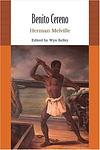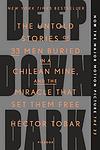The Greatest American, British "Chile" Books of All Time
Click to learn how this list is calculated.
This list represents a comprehensive and trusted collection of the greatest books. Developed through a specialized algorithm, it brings together 305 'best of' book lists to form a definitive guide to the world's most acclaimed books. For those interested in how these books are chosen, additional details can be found on the rankings page.
Genres
The "Chile" category in books encompasses a diverse range of literature connected to the South American country known for its long, narrow strip of land that stretches between the Andes mountains and the Pacific Ocean. This genre includes works by Chilean authors, historical accounts, cultural studies, travel guides, and political analysis. It covers a variety of subjects such as the nation's rich literary tradition, with Nobel laureates like Pablo Neruda and Gabriela Mistral; the tumultuous political landscape marked by the dictatorship of Augusto Pinochet; the unique geography and biodiversity; and the vibrant indigenous Mapuche heritage. Books in this category offer readers insights into the soul of Chile, from its poetic landscapes and urban dynamics to its complex social and political fabric, providing a multifaceted exploration of Chilean identity, resilience, and creativity.
Countries
Date Range
Reading Statistics
Click the button below to see how many of these books you've read!
Download
If you're interested in downloading this list as a CSV file for use in a spreadsheet application, you can easily do so by clicking the button below. Please note that to ensure a manageable file size and faster download, the CSV will include details for only the first 500 books.
Download-
1. The Voyage of the Beagle by Charles Darwin
This book is a vivid and exciting travel memoir as well as a detailed scientific field journal covering biology, geology, and anthropology that demonstrates the author’s keen powers of observation, written at a time when Western Europeans were still discovering and exploring much of the rest of the world. The author's five-year journey took him from the coasts of South America, Australia, and Africa to the South Pacific islands, during which he collected and documented the natural history of these areas. The voyage and the specimens he brought back would later form the basis for his famous theory of evolution.
The 1041st Greatest Book of All Time -
2. Benito Cereno by Herman Melville
"Benito Cereno" is a novella that tells the story of an American sea captain, Amasa Delano, who comes across a ship in distress off the coast of Chile. The ship, led by Captain Benito Cereno, appears to be in a state of disarray, with a mixed crew of Spanish sailors and African slaves. Throughout the story, Delano is kept in the dark about the true state of affairs on the ship, and it's only at the very end that he discovers a shocking truth - the slaves have revolted and are in control, with Cereno their captive. The novella is a tense exploration of power dynamics, race, and the nature of freedom.
The 2284th Greatest Book of All Time -
3. In Patagonia by Bruce Chatwin
In this travelogue, the author embarks on a journey through the remote and enigmatic region of Patagonia, located at the southern tip of South America. Blending history, legend, and personal anecdotes, the narrative weaves through the diverse landscapes and cultures of the area, as the author encounters a cast of intriguing characters, from outlaws to settlers, all while searching for traces of its storied past. The book is as much an exploration of the author's wanderlust and love for adventure as it is a portrait of the rugged, windswept terrain and the resilient spirit of the Patagonian people.
The 5818th Greatest Book of All Time -
4. A Brief History Of Neoliberalism by David Harvey
This book provides a critical examination of neoliberalism, tracing its origins and development from the late 20th century to its pervasive influence on global economics and politics. The author argues that neoliberalism, a doctrine advocating for free markets, deregulation, and reduction in government spending, has concentrated wealth and power in the hands of a few, leading to increased social inequality and environmental degradation. Through a detailed analysis of various countries' experiences, the book highlights the consequences of neoliberal policies and calls for a reevaluation of the current economic paradigm to address its shortcomings and create a more equitable and sustainable future.
The 8213th Greatest Book of All Time -
5. Alive by Piers Paul Read
"Alive" is a gripping true story of survival, recounting the harrowing ordeal of a Uruguayan rugby team whose plane crashes in the Andes mountains in 1972. Stranded for over two months in the harsh, freezing wilderness, the survivors face unimaginable hardships, including avalanches, starvation, and the devastating decision to resort to cannibalism to stay alive. The book is a testament to the strength of the human spirit and the will to survive against all odds.
The 8671st Greatest Book of All Time -
6. Deep Down Dark by Héctor Tobar
"Deep Down Dark" recounts the harrowing ordeal of 33 Chilean miners who were trapped deep beneath the Earth's surface for 69 days following a catastrophic collapse of the San José mine in 2010. The narrative delves into the psychological, emotional, and physical challenges faced by the miners as they struggled to survive in a dark, confined space, with limited food, water, and oxygen. The book also explores the global media frenzy surrounding the disaster and the miners' eventual dramatic rescue, highlighting the resilience of the human spirit and the power of collective hope and perseverance in the face of overwhelming adversity.
The 9798th Greatest Book of All Time -
7. Upheaval by Jared Diamond
This book delves into how nations cope with crises and the factors that determine their success or failure in overcoming them. By examining several countries' responses to profound upheavals, the author identifies a set of common challenges and solutions that can guide societies facing similar issues. Drawing parallels between personal psychological coping mechanisms and the ways countries navigate crises, the book offers a unique perspective on resilience, adaptation, and the critical choices that shape the destinies of nations. Through detailed case studies, it explores the complex interplay between national identity, societal flexibility, and the capacity for self-assessment, ultimately providing insights into the processes that enable societies to survive and thrive in the face of adversity.
The 10053rd Greatest Book of All Time
Reading Statistics
Click the button below to see how many of these books you've read!
Download
If you're interested in downloading this list as a CSV file for use in a spreadsheet application, you can easily do so by clicking the button below. Please note that to ensure a manageable file size and faster download, the CSV will include details for only the first 500 books.
Download





